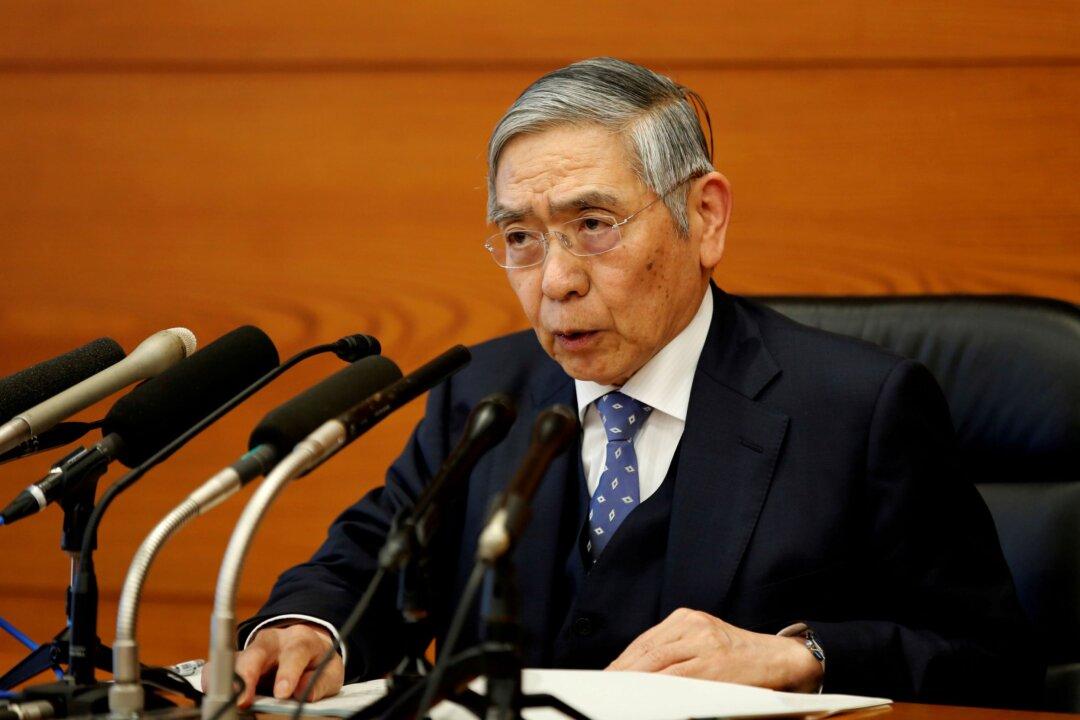TOKYO—The Bank of Japan (BOJ) offered on Thursday its gloomiest view on regional economies in more than a year as supply constraints disrupted factory output of cars and other products, clouding the outlook for the export-reliant economy.
In a quarterly report, the central bank slashed its economic assessment for five of the country’s nine regions—the biggest number of cuts since July last year—signalling alarm over the output disruptions and the hit to consumption from the coronavirus pandemic.





